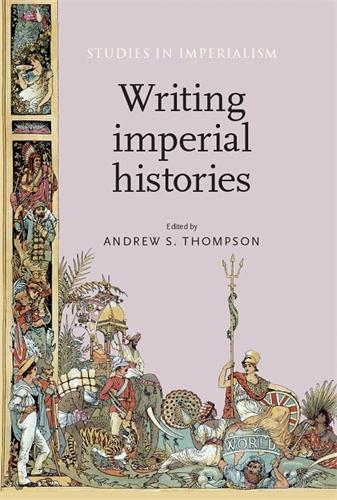
Writing Imperial Histories
(Hardback)
Available Formats
Publishing Details
Writing Imperial Histories
By (Author) Andrew Thompson
Manchester University Press
Manchester University Press
3rd September 2013
United Kingdom
Classifications
Physical Properties
Hardback
320
Width 156mm, Height 234mm
Description
This book appraises the critical contribution of the Studies in Imperialism series to the writing of imperial histories as the series passes its 100th publication. The volume brings together some of the most distinguished scholars writing today to explore the major intellectual trends in Imperial history, with a particular focus on the cultural readings of empire that have flourished over the last generation. When the Studies in Imperialism series was founded, the discipline of Imperial history was at what was probably its lowest ebb. A quarter of a century on, there has been a tremendous broadening of the scope of what the study of empire encompasses. Essays in the volume consider ways in which the series and the wider historiography have sought to reconnect British and imperial histories; to lay bare the cultural expressions and registers of colonial power; and to explore the variety of experiences the home population derived from the empire. -- .
Reviews
A fitting tribute to Professor MacKenzies enormous contribution to modern imperial history. In the spirit of MacKenzies expansive vision, this collection works both as a summation of his career and also as a stimulus to further research.'
Saul Dubow, Professor of History, Sussex University
Coincident attention to genealogy and innovative potential is the hallmark of this collection.
Leonardi and Ward, among others, connect recent cutting-edge scholarship
with its still-active ancestor: John M. MacKenzie, the founding editor of the Studies in
Imperialism. The theme reappears subtly in Robert Aldrichs study of gender in empire,
as he demonstrates that the series carved out a space for sexuality to be taken seriously
as a point of historical investigation, and, more pointedly, when Dane Kennedy traces
a clear path from early histories of exploration to the environmental histories now in
vogue in the academy. In fact, the dual vantage points make this collection much more
than a retrospective. While each of the essays elucidates the importance of past contributions
to the eld, the assembled authors also propose compelling future paths of inquiry.
Author Bio
Andrew S. Thompson is Professor of Modern History, University of Exeter
